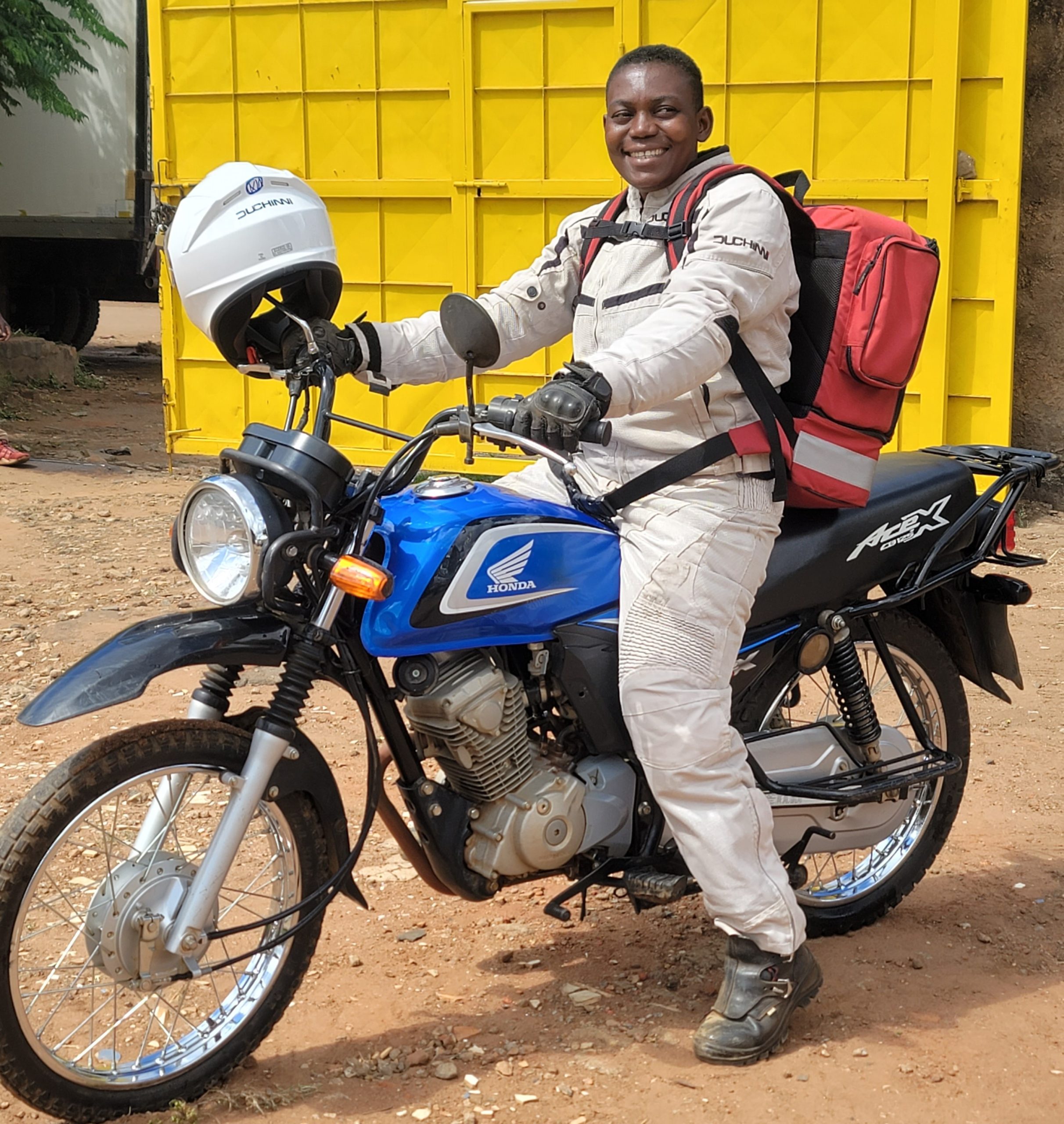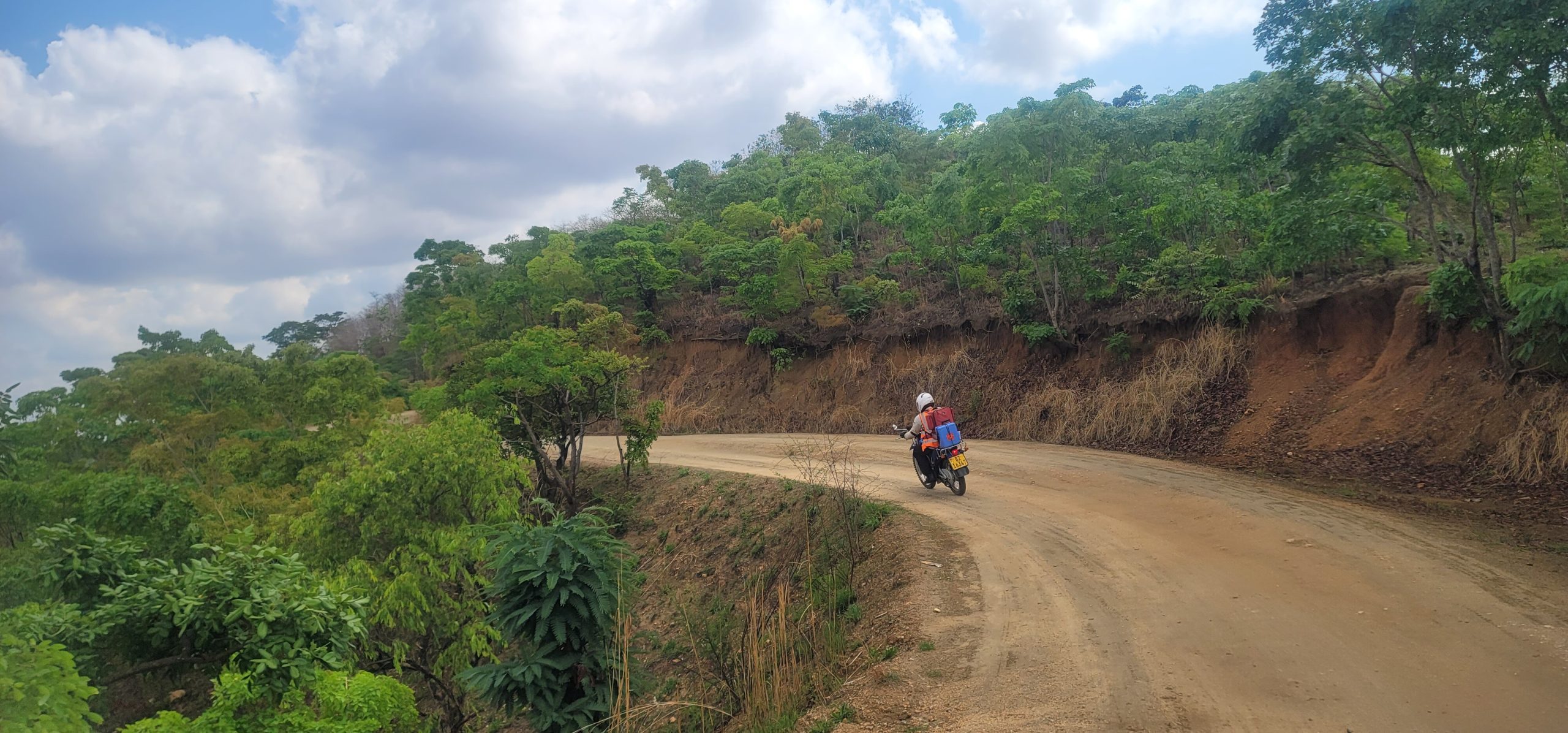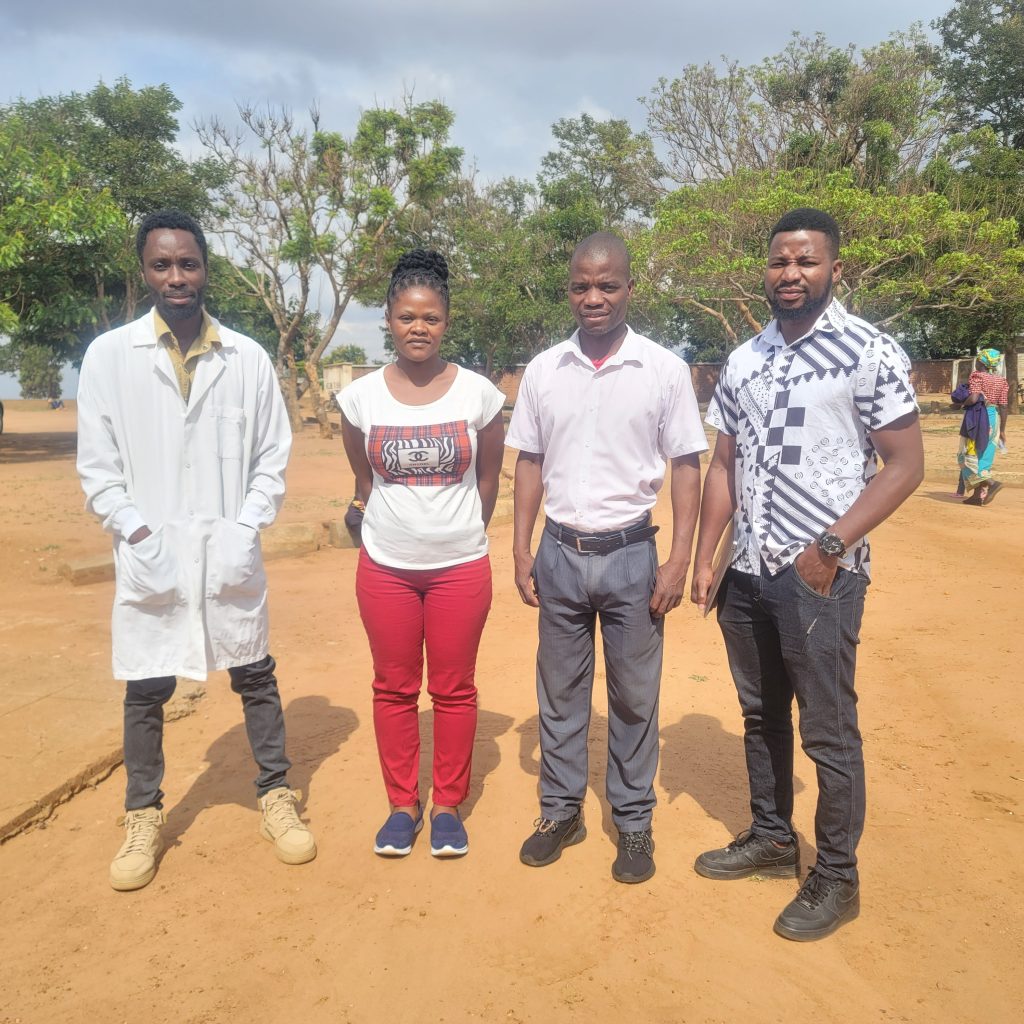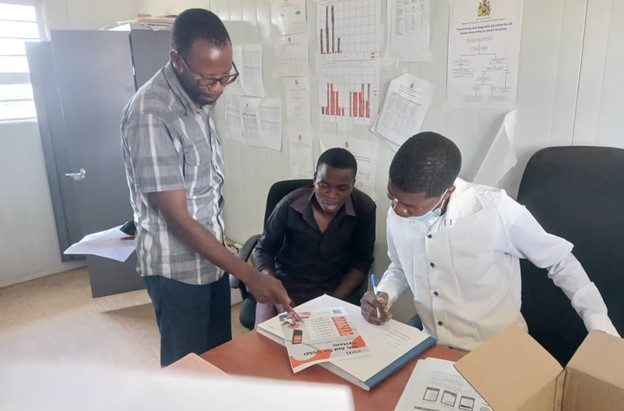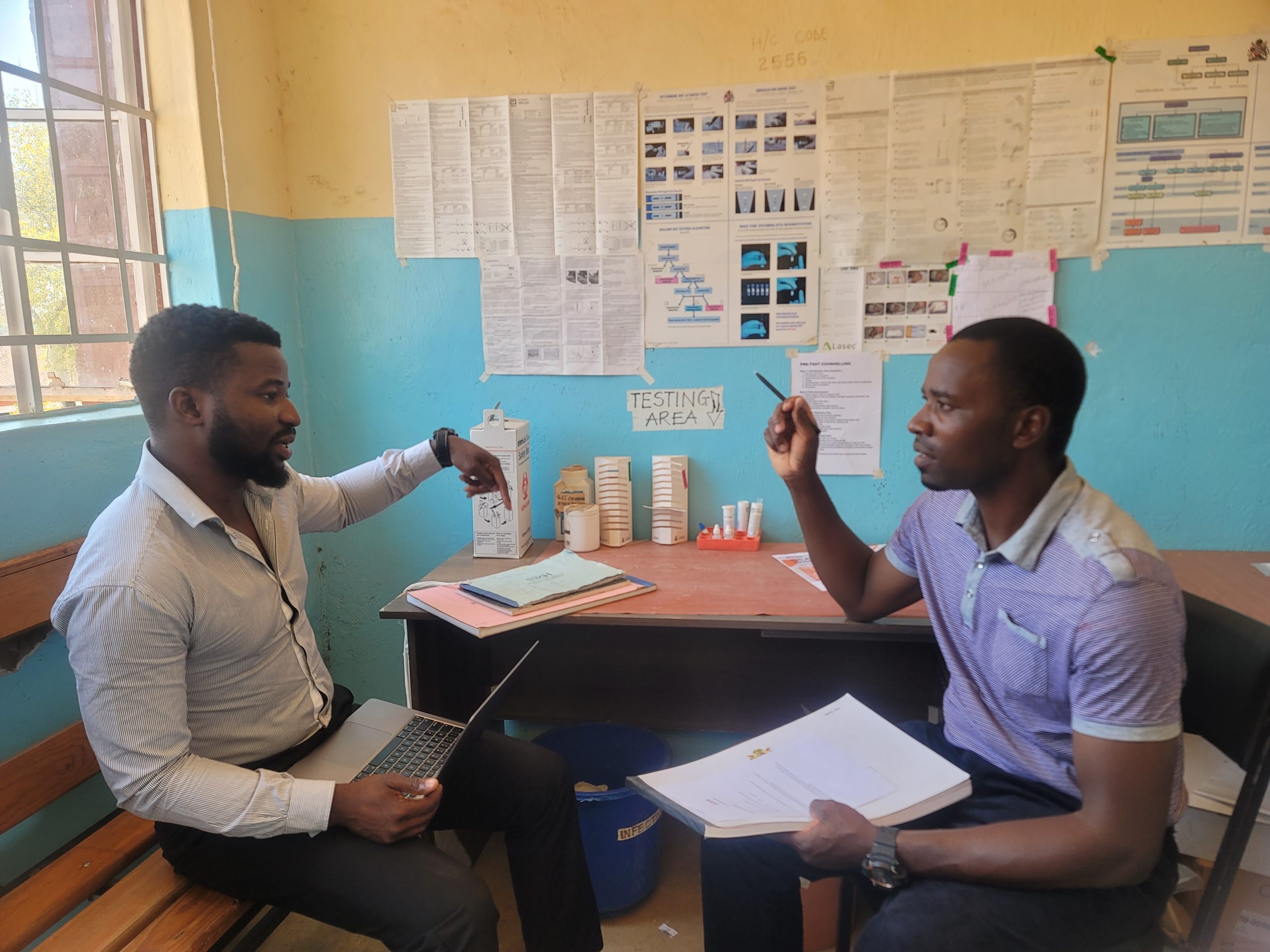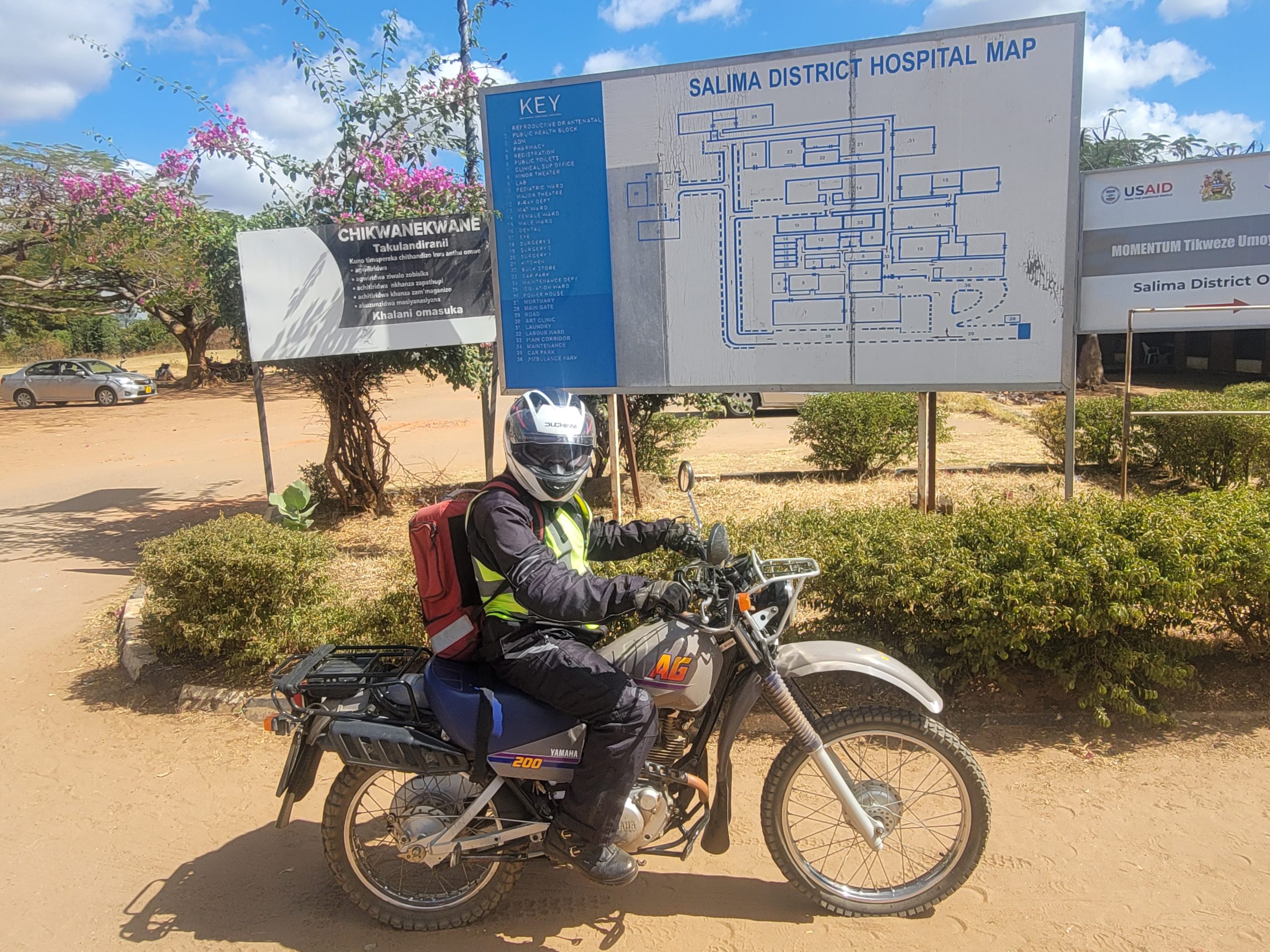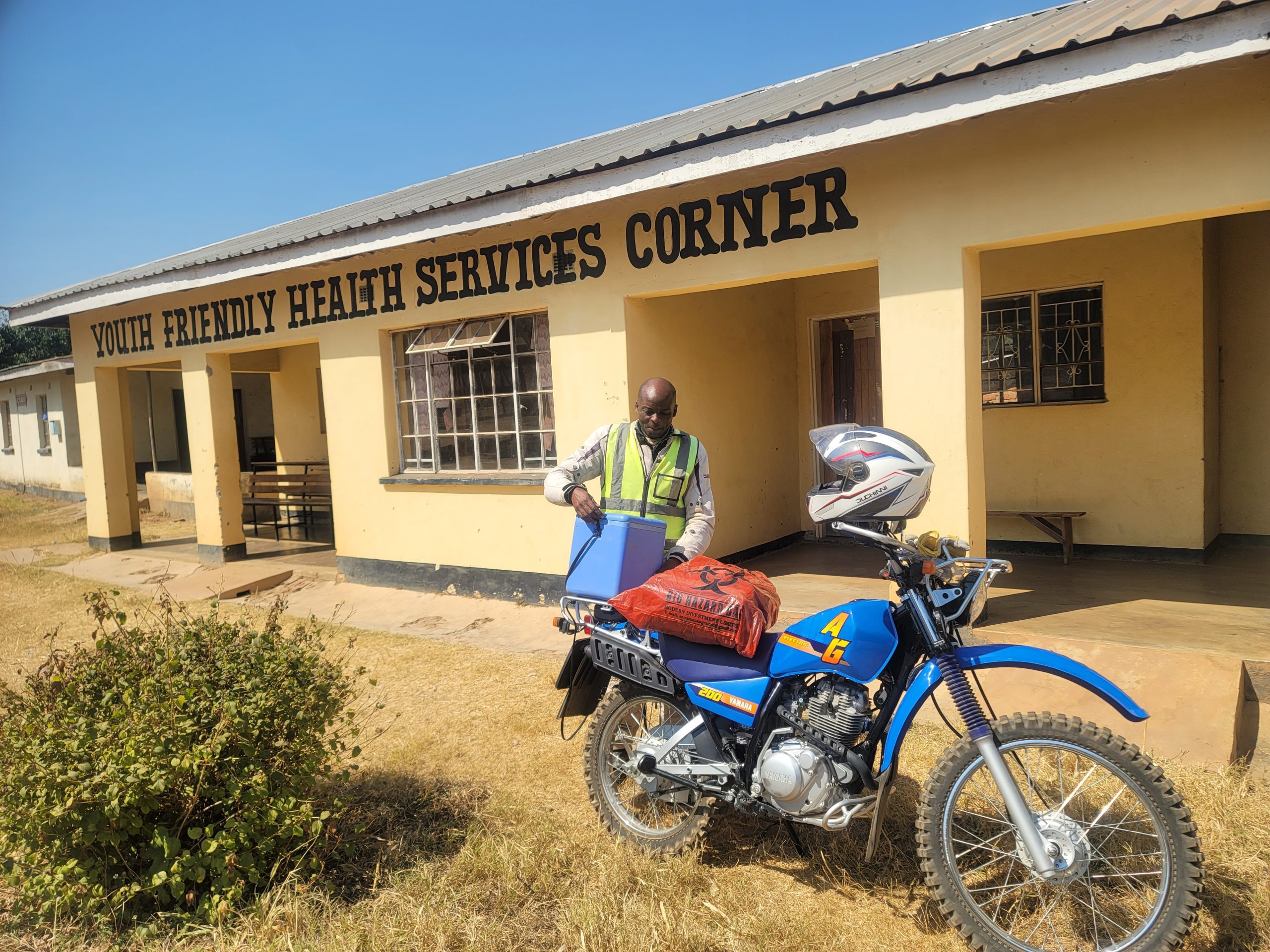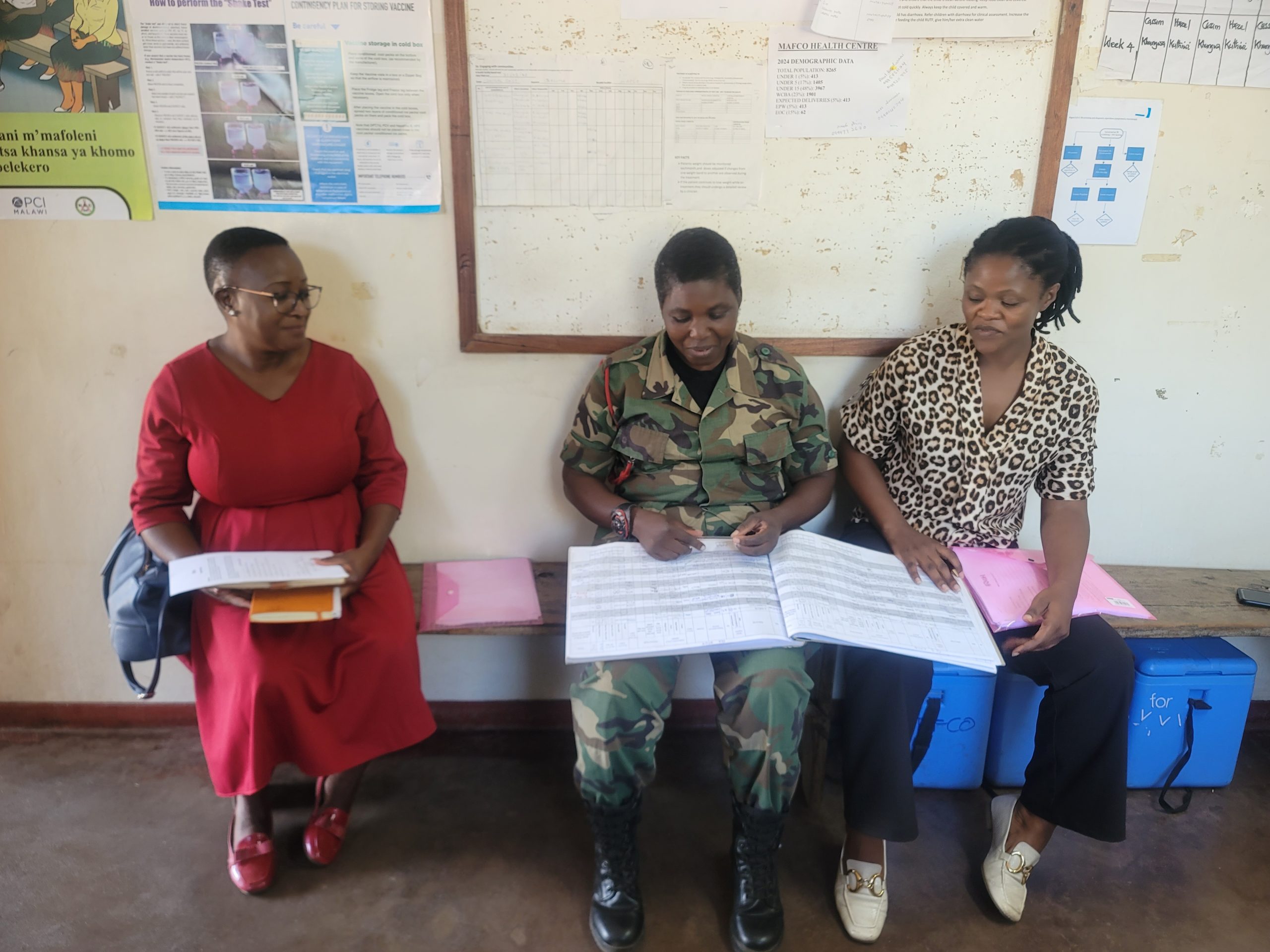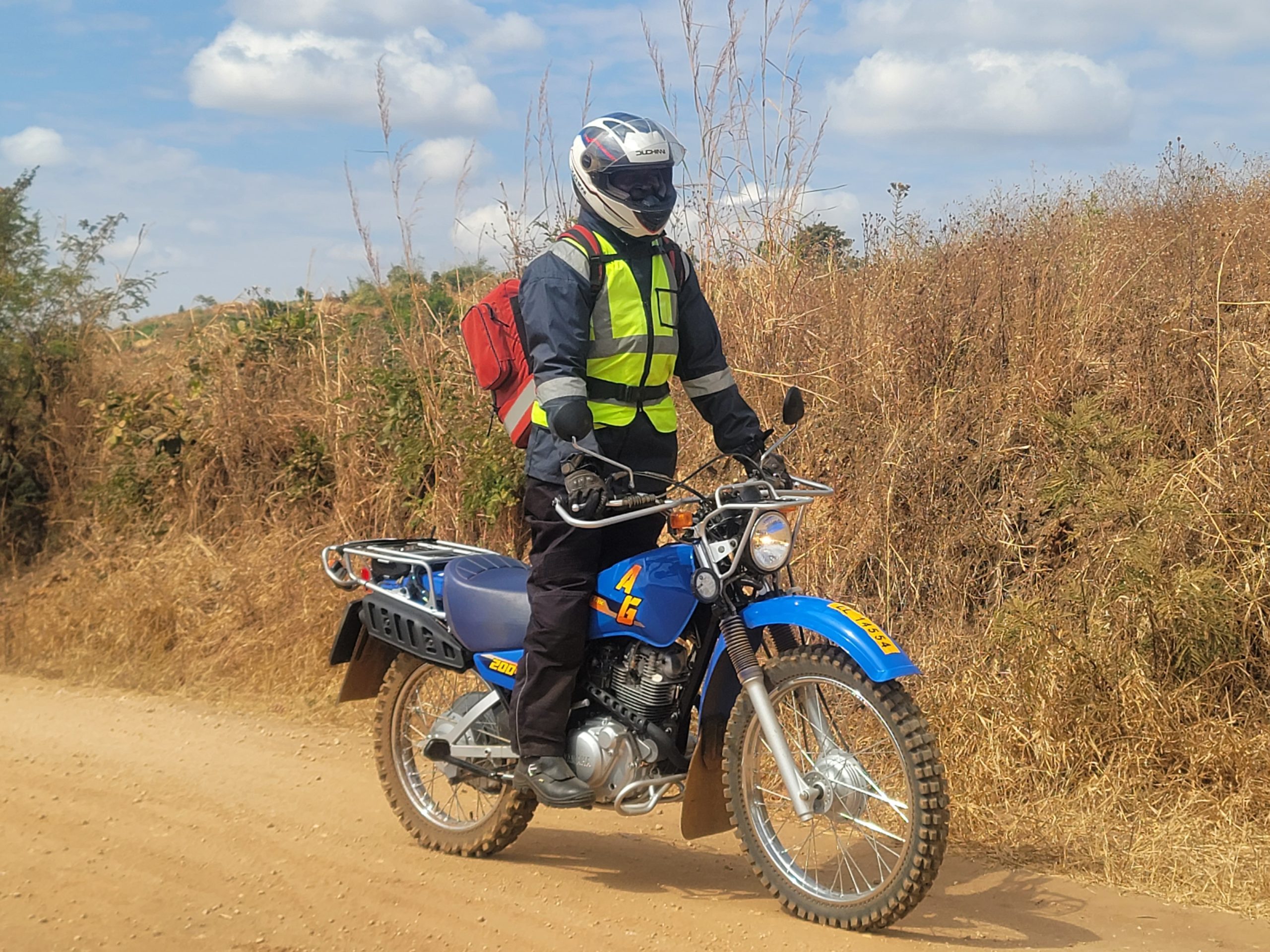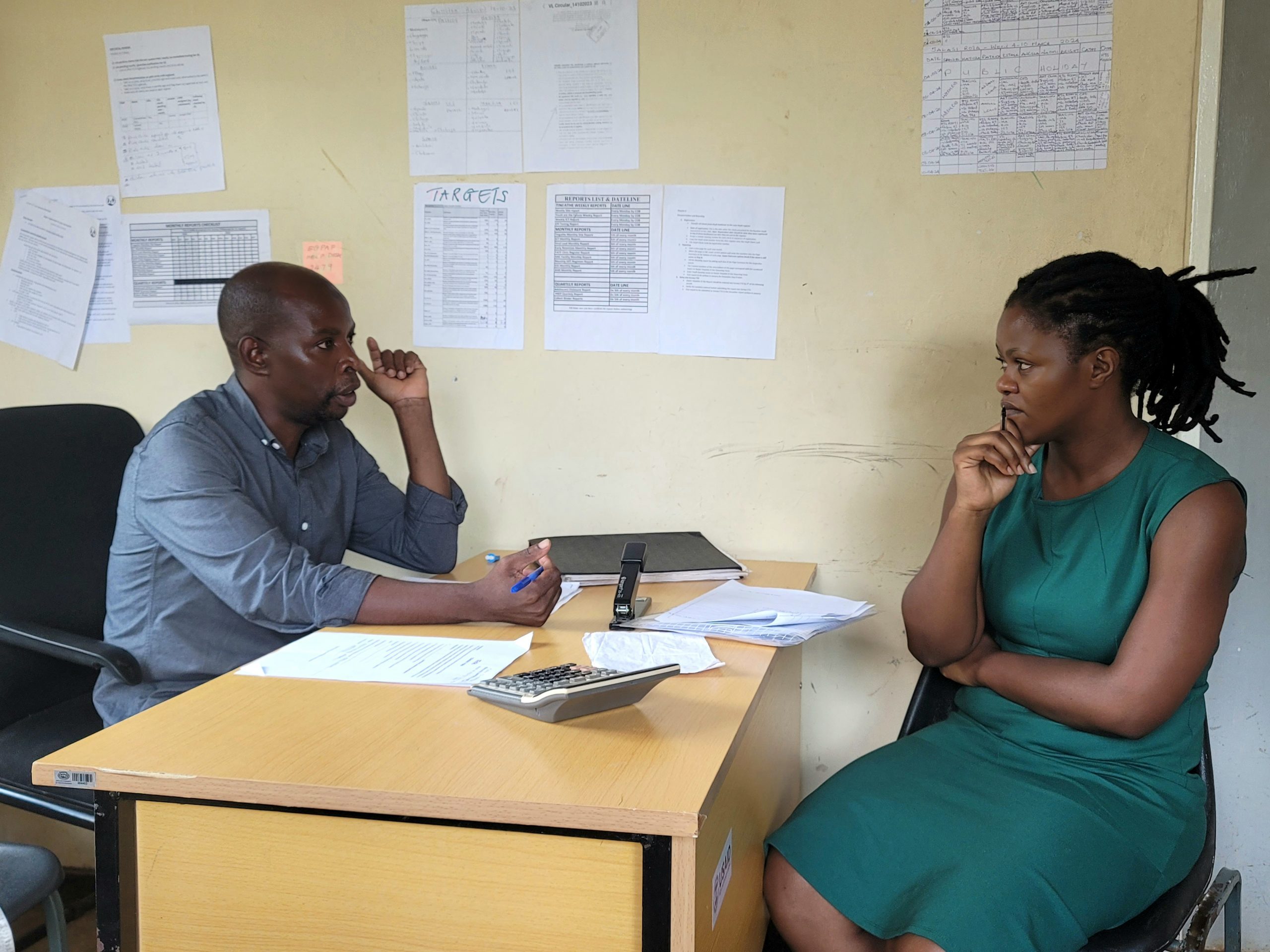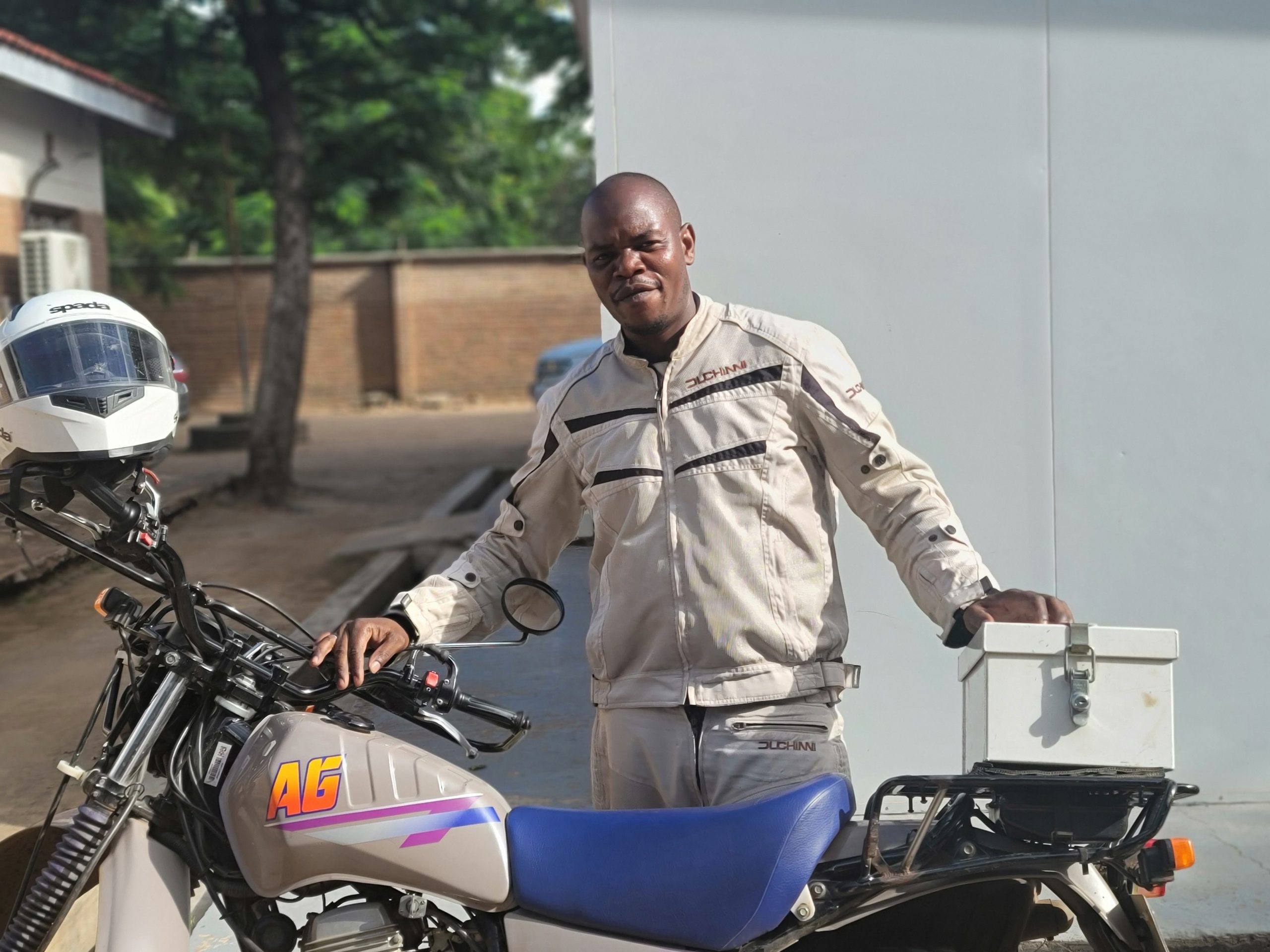Impact of the Stop Work Order on R4H Sample and Result Transportation; narrated by Maltida Banda, R4H Sample Transport Courier
In the first quarter of 2025, the uncertainty as the U.S. Government’s aid freeze cast a shadow over the R4H program. For two long weeks, the organization, including the Sample Transport couriers, faced a stop-work order, affecting the transportation of medical samples and results.
Medical samples and results were not being transported.” I was receiving calls from healthcare workers to report to health facilities for sample collection, but I could not do so at that time due to the stop work order”, reported Matilda Banda, R4H Sample Transport Courier, Lilongwe district. The silence was worrisome, and the weight of responsibility felt heavier than ever with the uncertainty.
But then, in the week of 17th February, we were back on the road and it felt like a breath of fresh air. I remember the moment I received the communication from the head office through the Programs Manager, Angellina Mwase. “I called the healthcare workers from the health facilities I reach to inquire about the samples which were to be prioritized and sent to the molecular and hub laboratories for urgent testing” added Maltida.
Commenting on the impact of the executive stop work order in healthcare delivery, Francis Mdzingah- Health Surveillance Assistant (HSA) at Chiwamba Health Center in Lilongwe said “R4H couriers are known for their reliability; however, the stop work order disrupted operations in their implementing health facilities. Clients rely on timely results to manage their health based on viral load outcomes. Unfortunately, during this period, the delay in sample transportation posed a significant challenge, impacting the ability to provide timely health advice”.
“My heart was filled with joy as I loaded the first batch of HIV viral load and TB sputum samples into my courier bag. I was reminded that each sample represents a life, a story, and the hope for better health,” Matilda concluded.
Together with the Ministry of Health (MoH), and other implementing partners, R4H continues to transport medical samples and results in all 29 districts of Malawi,currently reaching 810 health facilities.








